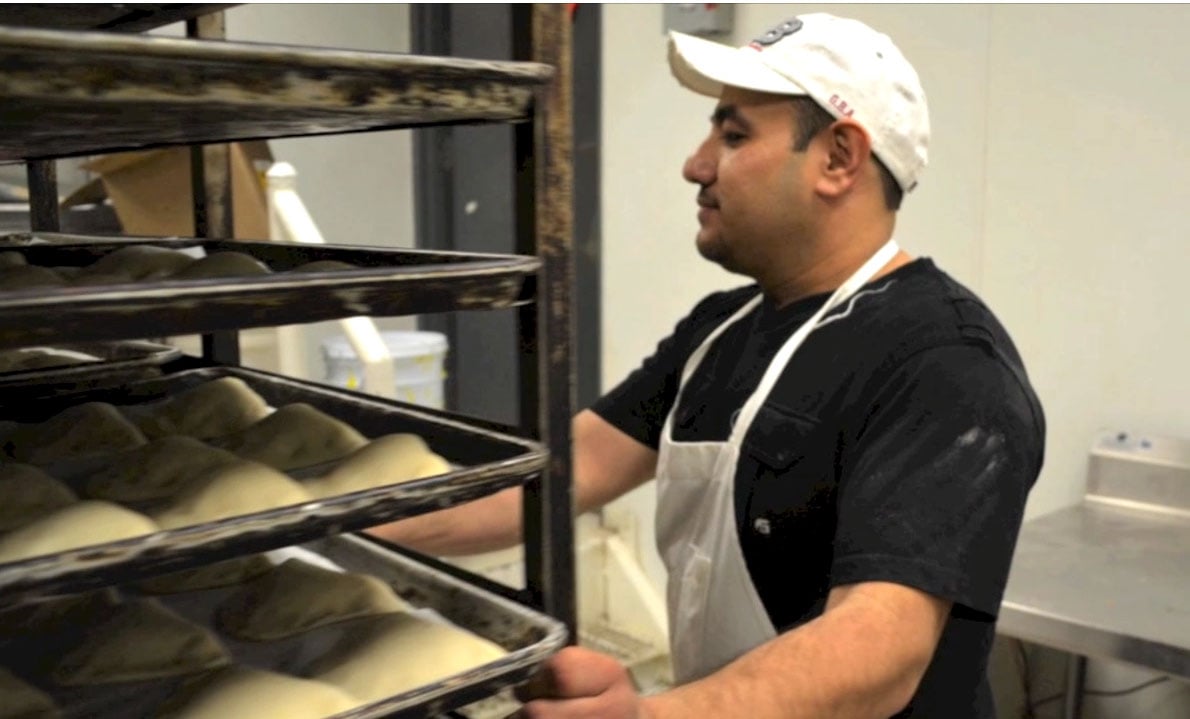Analyzing The Trial's Ending: Tea's Guilt And Her Parents' Destiny

Table of Contents
The Evidence Against Tea: A Critical Examination
The prosecution's case against Tea rested heavily on circumstantial evidence and witness testimonies, both of which raise significant concerns about their validity and reliability. The lack of direct evidence linking Tea to the crime leaves considerable room for reasonable doubt, a critical element in any fair trial.
Circumstantial Evidence and its Limitations
- Weak Connections: The circumstantial evidence presented was tenuous at best, with several key pieces lacking a direct link to Tea. For example, the presence of her belongings near the scene could be explained by innocent circumstances.
- Alternative Interpretations: Many pieces of evidence presented alternative interpretations that were not adequately explored during the trial. This failure to consider alternative explanations undermines the prosecution's narrative.
- Investigative Bias: The investigation itself might have been influenced by unconscious biases, leading to the selective pursuit of evidence that supported a pre-conceived notion of Tea's guilt, while neglecting potentially exculpatory evidence.
Witness Testimony and Credibility Gaps
- Motivated Testimony: Several key witnesses had potential motives to lie or exaggerate their accounts, casting serious doubt on the reliability of their statements. Their personal relationships with other parties involved in the case could have influenced their testimony.
- Contradictory Accounts: Witness testimonies contained several contradictions and inconsistencies, further eroding their credibility and weakening the prosecution's case against Tea. These discrepancies highlight the unreliability of eyewitness accounts.
- Impact on the Verdict: The flawed and contradictory nature of the witness testimony significantly impacted the trial's outcome, contributing to the overall ambiguity and the lingering questions surrounding Tea's guilt.
Lack of Direct Evidence and Reasonable Doubt
- Absence of Concrete Proof: The most striking aspect of the trial was the complete lack of direct evidence, such as fingerprints, DNA evidence, or a clear confession, directly linking Tea to the crime.
- Reasonable Doubt Defined: The principle of reasonable doubt dictates that if there is any uncertainty or doubt about a defendant's guilt, the verdict must be "not guilty." The lack of direct evidence strongly suggests a reasonable doubt in Tea's case.
- Ambiguity of the Ending: The absence of concrete evidence is the primary factor contributing to the ambiguity of the trial's ending, making it a subject of ongoing discussion and speculation.
Exploring the Parents' Fate: Consequences and Implications
The trial's outcome has had a profound and devastating impact on Tea's parents, extending far beyond the immediate legal ramifications. The emotional toll, social repercussions, and their potential role in the narrative all contribute to the complex aftermath.
The Emotional Toll on Tea's Parents
- Psychological Impact: The stress, anxiety, and uncertainty associated with the trial have likely had a significant psychological impact on Tea's parents, potentially leading to long-term emotional distress.
- Strain on the Relationship: The ordeal may have strained their relationship, testing the strength of their bond under immense pressure. The trial's ambiguity could further exacerbate existing tensions.
- Societal Implications: Families facing similar situations often experience social isolation, stigma, and a lack of understanding from their communities. The trial's impact on Tea's parents highlights the societal consequences of such cases.
Legal and Social Ramifications for the Parents
- Potential Legal Repercussions: Depending on the specifics of the case and the jurisdiction, Tea's parents may face potential legal repercussions, though this is dependent on the specifics of the situation and any allegations of complicity or negligence.
- Social Stigma and Judgment: They are likely to face social stigma and judgment from their community, regardless of the outcome of the trial. This social pressure can lead to isolation and difficulties in daily life.
- Long-Term Consequences: The trial's impact on their reputation and social standing could have long-term consequences, affecting their professional lives and social interactions.
The Parents' Role in the Narrative and Their Future
- Influence on Events: The actions (or inactions) of Tea's parents before, during, and after the alleged crime may have significantly influenced the events leading to the trial.
- Future Storylines: Their role in the narrative suggests potential for future storylines, exploring their attempts at reconciliation, coping mechanisms, and their search for truth and justice.
- Redemption or Further Struggle: The ambiguity of the ending leaves the door open for their characters to find redemption or to continue grappling with the consequences of the trial.
Interpreting the Ambiguity of the Trial's Ending: Multiple Perspectives
The ambiguous ending of the trial is not a flaw but a deliberate choice, designed to provoke critical thought and encourage diverse interpretations. The lack of a clear-cut resolution allows for a deeper exploration of justice, morality, and the subjective nature of truth.
Thematic Ambiguity: Exploring Justice and Morality
- Moral Complexities: The trial presents a complex web of moral dilemmas, forcing viewers/readers to confront uncomfortable truths about justice, fairness, and the limitations of the legal system.
- Interpretations of Justice: The ambiguous ending allows for diverse interpretations of justice, challenging the notion of a singular, objective truth. What constitutes "justice" in this case remains a central point of debate.
- Encouraging Critical Thinking: The ambiguity serves as a powerful tool to encourage critical thinking and reflection on the complexities of the legal system and the human condition.
Reader/Viewer Interpretation and Engagement
- Diverse Interpretations: The open ending has spurred lively discussions and diverse interpretations among viewers and readers, with many engaging in online forums to share their thoughts and theories.
- Fan Theories and Speculation: The ambiguity has fueled the creation of numerous fan theories and speculations, further enhancing audience engagement and extending the narrative beyond the trial's conclusion.
- Continued Engagement: The lack of closure creates a sense of incompleteness that keeps the audience engaged long after the trial concludes, sparking continued discussions and interpretations.
The Power of Unanswered Questions and Future Implications
- Leaving the Audience Wanting More: The unanswered questions and ambiguity create a powerful sense of anticipation and leave the audience wanting more, potentially paving the way for sequels or spin-offs.
- Potential for Future Sequels: The unresolved plot points and the ambiguous nature of the ending create numerous possibilities for future installments, exploring the lingering questions and potential developments.
- Impact on the Narrative Arc: The ambiguous ending contributes to a richer, more thought-provoking narrative arc, leaving a lasting impression on the audience long after the credits roll.
Re-examining Tea's Guilt and Her Parents' Destiny
This examination of Tea's trial has revealed the inherent complexities surrounding Tea's guilt, highlighting the limitations of circumstantial evidence and the impact of unreliable testimony. The trial's ambiguity significantly affects not only Tea's fate but also profoundly impacts the destiny of her parents, leaving them to grapple with the emotional, legal, and social consequences. The ambiguous ending, however, is not a weakness but a powerful device, fostering continuous engagement and critical reflection on justice, morality, and the enduring power of unanswered questions.
Key Takeaways: The trial's ending is purposefully ambiguous, highlighting the complexities of justice and the limitations of evidence. Tea's guilt remains uncertain, while her parents face significant consequences. The ambiguity encourages ongoing discussion and interpretation.
Call to Action: Share your interpretations of Tea's guilt and her parents' destiny in the comments below! Let's continue the discussion about the trial's ending and its impact. What are your thoughts on the evidence presented? What do you believe the future holds for Tea and her family? Feel free to share links to further reading or research on similar cases or themes to enrich the conversation.

Featured Posts
-
 100 Broadband Connectivity De Soto County Leads The Way In State Name
May 19, 2025
100 Broadband Connectivity De Soto County Leads The Way In State Name
May 19, 2025 -
 Diy Chateau Decor Affordable Ways To Achieve A Chateau Look
May 19, 2025
Diy Chateau Decor Affordable Ways To Achieve A Chateau Look
May 19, 2025 -
 Oernskoeldsvik Vill Arrangera Eurovision Song Contest 2026
May 19, 2025
Oernskoeldsvik Vill Arrangera Eurovision Song Contest 2026
May 19, 2025 -
 La Muerte De Juan Aguilera Un Adios Al Campeon Espanol Del Masters 1000
May 19, 2025
La Muerte De Juan Aguilera Un Adios Al Campeon Espanol Del Masters 1000
May 19, 2025 -
 Taksidi Sta Ierosolyma Gia Tin Kyriaki Toy Antipasxa Organosi Kai Proetoimasia
May 19, 2025
Taksidi Sta Ierosolyma Gia Tin Kyriaki Toy Antipasxa Organosi Kai Proetoimasia
May 19, 2025
